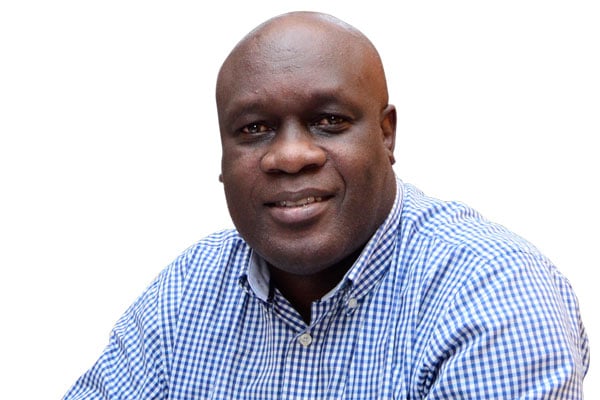Prime
A powerful talk about tanks in Ukraine, TikTok, trust in news

Odoobo C. Bichachi
What you need to know:
We perhaps need to challenge ourselves at every point of filing or editing a story that we score on this index.
On the eve of International Women’s Day this week, Reuter’s editor-in-chief Alessandra Galloni delivered the 2022 Reuters Memorial Lecture. It was a very powerful lecture! Titled; “Tanks, TikTok and trust: Journalism in a time of turmoil”, she tackled in a most simple and interesting way a lot of the issues journalists and media houses are grappling with today.
To my journalism compatriots out there, this is highly recommended reading. I hope you find time to “Google it” and imbibe the wisdom and lessons it carries.
First for me was the Reuter’s Principles adopted in 1941. They were informed by the coverage of World War II and the criticism the media faced at the time, and still face today whether in Ukraine or Afghanistan. These principles oblige every one of their journalists “to act at all times with integrity, independence, and freedom from bias.”
Indeed these are grand principles many journalists and media organisations profess, or try to follow, with differing degrees of success. We perhaps need to challenge ourselves at every point of filing or editing a story that we score on this index.
Second was what she described as the basics behind these principles that they try to practice every day, namely:
• We want to be first, but we favour being right, and safe, over being first.
•We verify facts, including when they come from the horse’s mouth (and sometimes, because they come from the horse’s mouth).
•We practice “no surprises” journalism, so that all subjects of our stories know what we are asserting about them before we publish – and we make real, not just perfunctory, effort to seek their view.
• We disclose key facts that are not known.
• We aim for neutrality of style and substance (for those editors among you, have you noticed that when reporters agree with a source, it tends to be “explaining” but when they disagree it tends to be “insisting?)
•And we correct mistakes comprehensively and as quickly as possible”
I am sure many journalists and newsrooms will see themselves in some of, if not all, the above listed situations. And many media consumers – especially of news – will perhaps have noticed our failures with regard to the above, and our successes.
The ease in publishing brought about by social media has made many reporters and editors always itching to be the first to “break news” which sometimes turns out to be false, distorted or only half true. We also have the infamous “was not available for comment” that sometimes is purely for false public accountability when no real effort was made.
We have also encountered the general reluctance to correct where he got it wrong, often taking refuge in statements such as “we stand by our story” when there is no story to stand by!
If as individual journalists and newsrooms we challenged ourselves to follow these basics, there would perhaps be less complaints, more kudos, and more trust.
Which brings me to the third issue she so eloquently tackled; trust.
Trust as we all know is one of media’s core value propositions and is perhaps more important today because the avalanche of information, disinformation and misinformation on the internet has made it difficult for the public to separate grain from chuff. She said trust is mostly built on factual reporting, impartiality and good sourcing. This is known by nearly every journalist. In fact scientific surveys have also shown so; that audiences like and trust impartial news! Why we are often partial is, of course, a factor of many things in the environment we operate. Whatever it is, lack of impartiality kills trust in our journalism – individually and collectively.
Fourthly, she spoke about fact-checking especially in this era of social media [the Fifth Estate] where, as an example, images of war in Syria, Libya or Iraq have been posted as current images of the war in Ukraine. Sometimes it is deliberate propaganda but many times these fake stories are multiplied by gullible and innocent citizen journalists.
Thankfully, she said, there is “a global army of fact-checkers working overtime to separate fact from fiction. A June 2021 census by the Duke Reporter’s Lab counted 341 active fact-checking initiatives, operating in 102 countries.”
We all know what many of the online-only media platforms in Uganda are doing to spread fake news. Is it not time we had an army of fact checkers in Uganda media space to help citizens separate fake from real news?
Send your feedback/complaints to [email protected] or call/text on +256 776 500725.



